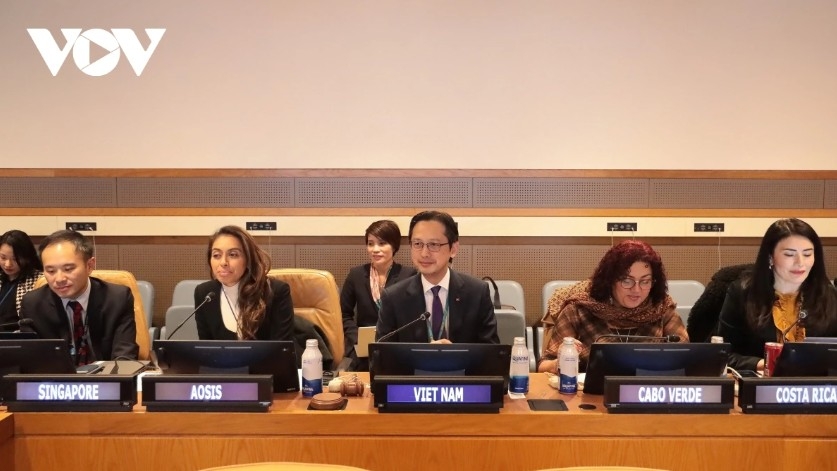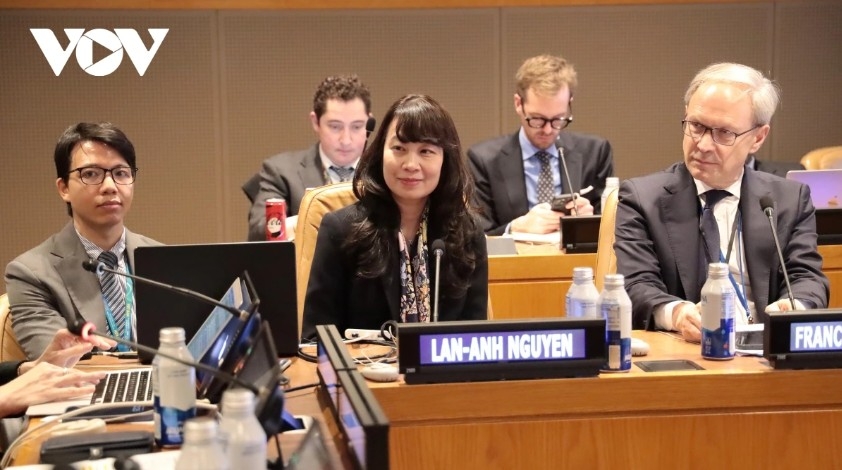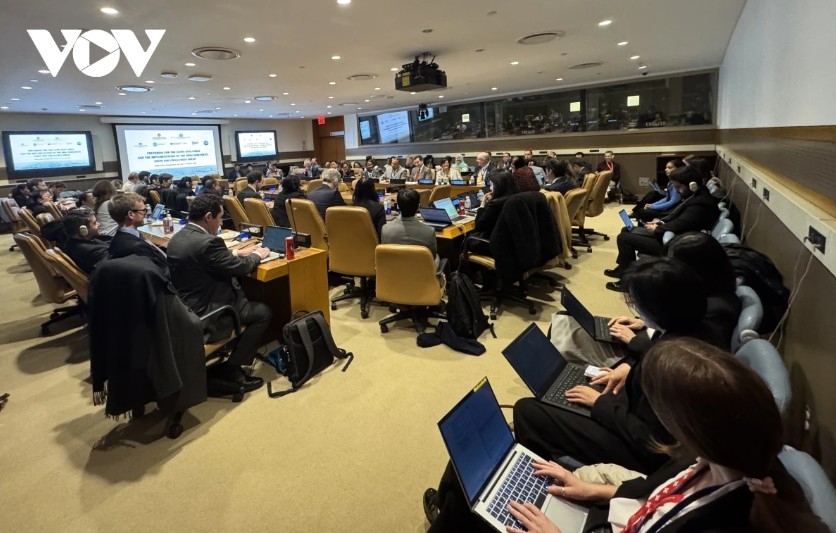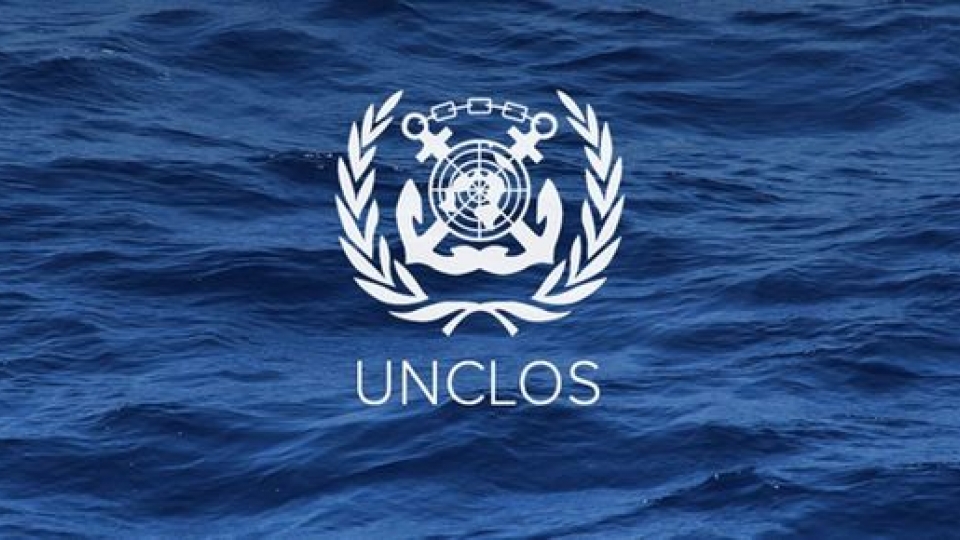Vietnam promotes implementation of the BBNJ Agreement
VOV.VN - Vietnam and Singapore co organized a roundtable on preparatory steps for the effective implementation of the agreement on the conservation and sustainable use of marine biological diversity of areas beyond national jurisdiction (BBNJ) on November 1, during International Law Week at the 80th session of the United Nations General Assembly.

The roundtable, chaired by Ambassador Do Hung Viet, Head of Vietnam’s Permanent Mission to the United Nations, and co-sponsored by Australia, France, Costa Rica, Belize, and the Alliance of Small Island States (AOSIS), attracted leading experts and scholars on the law of the sea, as well as delegates from nearly 100 countries across five continents.
The Agreement under the United Nations Convention on the Law of the Sea on the Conservation and Sustainable Use of Marine Biological Diversity of Areas beyond National Jurisdiction (BBNJ Agreement) will officially take effect on January 17, 2026, after reaching the milestone of 60 ratifications and approvals on September 19, 2025.
Following the adoption of the BBNJ Agreement, a preparatory committee established in early 2024 has held two sessions to discuss specific provisions on the procedures and organizational structures of bodies and institutions to be created under the agreement, such as the Conference of the Parties (COP), the scientific and technical body, the financial mechanism, the information-sharing mechanism, the Compliance and Implementation Committee, and the Secretariat.
These efforts aim to lay the groundwork for carrying out the agreement’s breakthrough provisions across its four pillars: access to, exploitation of, and fair and equitable sharing of benefits arising from the use of marine genetic resources; establishment and management of marine protected areas; environmental impact assessment for activities in areas beyond national jurisdiction; and capacity-building and marine technology transfer.
These efforts aim to lay the groundwork for carrying out the agreement’s groundbreaking new provisions across its four pillars: access to, exploitation of, and fair and equitable sharing of benefits arising from the use of marine genetic resources; establishment and management of marine protected areas; environmental impact assessment for activities in areas beyond national jurisdiction; and capacity-building and marine technology transfer.
With just over two months remaining before the agreement officially takes effect, the Chair of the BBNJ Intergovernmental Conference and the two Co-Chairs of the BBNJ Preparatory Commission emphasized at the roundtable that the adoption of the agreement by consensus and its forthcoming entry into force mark only the beginning.
They stressed that countries need to further accelerate discussions within the Preparatory Commission to reach early agreement on rules of procedure and institutional arrangements, with the aim of making the agreement’s bodies operational immediately after COP 1, expected between now and January 2027.
Ambassadors and legal experts from France, Costa Rica, Cabo Verde, Palau, Sierra Leone, AOSIS, and several other countries also engaged in in-depth discussions on the implications, opportunities, and challenges for states, particularly developing countries and small island nations, in implementing the provisions on environmental impact assessment (EIA) and area-based management tools (ABMTs), as well as on ways to develop a fair and sustainable financial mechanism drawing on lessons learned from the operation of various multilateral agreements in recent years.
Speaking as a keynote speaker at the roundtable, Dr. Nguyen Thi Lan Anh, Vietnam’s candidate for the position of judge at the International Tribunal for the Law of the Sea (ITLOS), shared national-level preparations for implementing the agreement. She stressed that capacity-building and marine technology transfer are a crucial component to ensuring the effective implementation of the BBNJ Agreement, creating a mechanism that helps developing countries strengthen their domestic legal and institutional frameworks, as well as enhance training and marine scientific research capacity, enabling scientists from developing nations to participate substantively in the collection, research, and utilization of marine genetic resources in the high seas and deep seabed.

Developing countries should assess their needs and priorities, step up regional and international cooperation, and make the most of the institutional and financial mechanisms established under the agreement. They are encouraged to participate actively and substantively in implementing all four pillars of the agreement so as to both proactively safeguard their national interests and contribute to the protection of marine biodiversity as well as the conservation and sustainable use of resources in areas beyond national jurisdiction.
In his concluding remarks, on behalf of the co-organizers and co-sponsors of the roundtable, Ambassador Do Hung Viet, Permanent Representative of Vietnam to the United Nations, expressed confidence in the future and the opportunities that the agreement will bring. He called on countries to continue working together to speed up institutional and legal preparations at all levels in order to move into the implementation phase of the BBNJ Agreement in the time ahead, with the same spirit of cooperation, constructive dialogue, and goodwill that characterized the negotiation, signing, and ratification processes leading to the agreement’s entry into force.
The BBNJ Agreement was adopted by the United Nations General Assembly on June 19, 2023, following nearly two decades of negotiations. It was opened for signature in New York on September 20, 2023, and has so far been signed by 145 countries and ratified or approved by 75. Vietnam was among the first countries to sign the agreement on the opening day and is also among the frontrunners in completing domestic procedures for its approval, directly contributing to the agreement reaching the threshold of 60 ratifications and approvals required for its entry into force.
The organization of this roundtable, together with Vietnam’s active and constructive contributions to the BBNJ process, once again reaffirms the country’s role as an active and responsible member of the international community, working alongside other nations to address global issues related to the seas and oceans.




